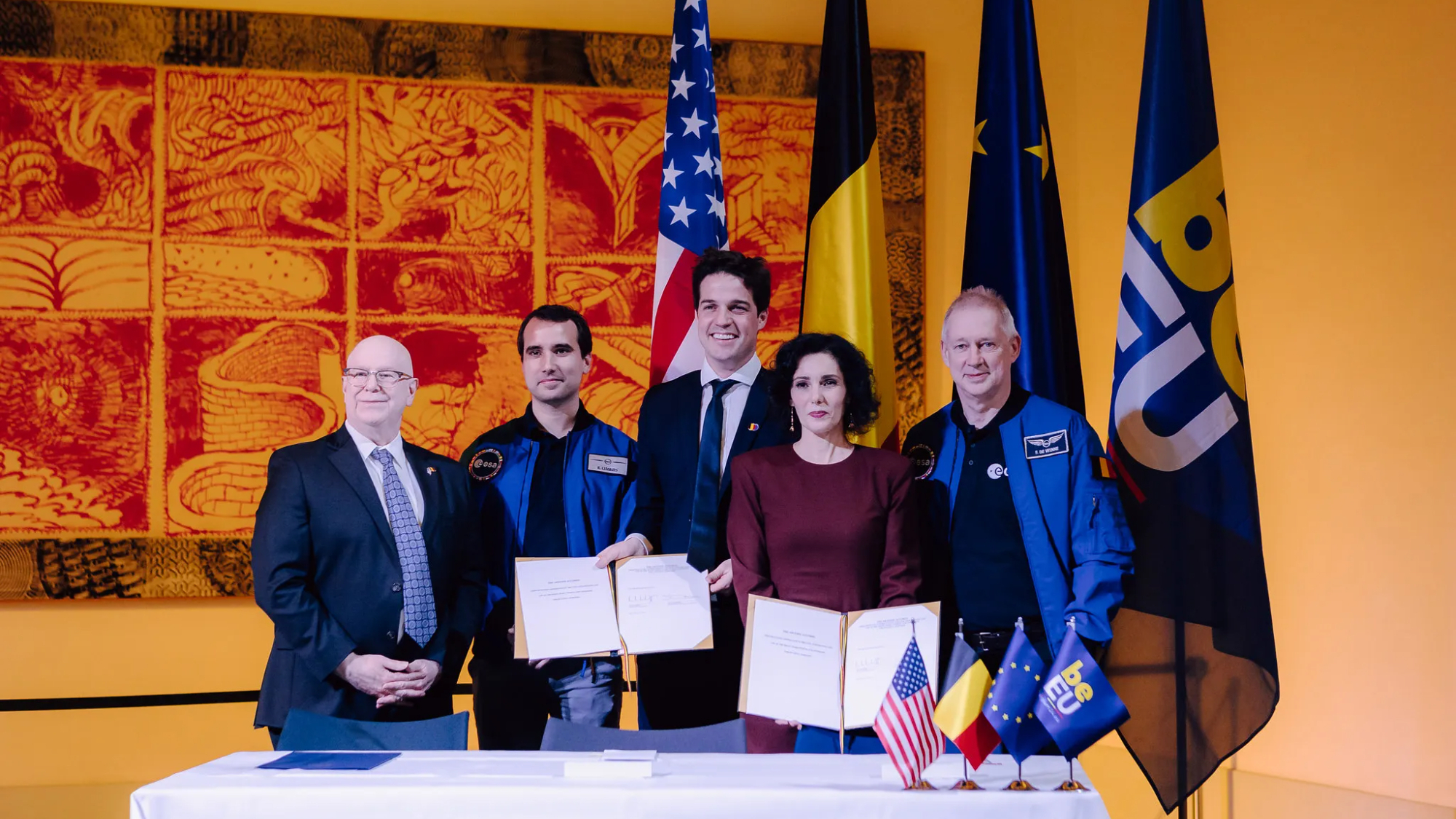
Another nation has joined the United States' moon-exploration framework.
Belgium signed the Artemis Accords on Tuesday (Jan. 23), becoming the 34th country to do so.
"Congratulations to Belgium on becoming the newest member of the Artemis Accords family," NASA Administrator Bill Nelson said in a statement. "It's clear that countries around the world understand the opportunity that space presents. As the 34th signatory of the Artemis Accords, Belgium is showing great leadership in committing to responsible exploration in the 21st century."
Related: What are the Artemis Accords?
As Nelson noted, the Artemis Accords lay out a set of principles for peaceful and responsible exploration of the final frontier — particularly the moon, which NASA is targeting with its Artemis program.
Artemis aims to establish a permanent, sustainable human presence on and around Earth's nearest neighbor by the end of the 2020s. NASA plans to achieve this goal with the help of a variety of commercial and international partners (including a number of Accord signatories).
Belgium joined up during a Tuesday ceremony at the Museum of Fine Arts in Brussels, with Hadja Lahbib and Thomas Dermine signing on behalf of the country.
Get the Space.com Newsletter
Breaking space news, the latest updates on rocket launches, skywatching events and more!
"Joining the Artemis Accords reflects our logic of cooperation and enables Belgium to join the working group of states that have already signed," said Dermine. Dermine is Belgium's state secretary for economic recovery and strategic investments, and is in charge of science policy for the nation.
"Belgium always has its feet on the ground and its head in the stars," added Lahbib. Lahbib is the nation's minister of foreign affairs, European affairs and foreign trade, and federal cultural institutions.
"Our country is one of the world leaders in space exploration," she said. "The signing of the Artemis Accords shows our ongoing commitment to sustainable and responsible space, and will strengthen ties with international partners. It will also open new economic opportunities for our companies, which have world-renowned expertise in the space sector."
NASA has launched one Artemis mission to date — Artemis 1, which sent an uncrewed Orion capsule to lunar orbit and back in late 2022. Artemis 2, which will send four astronauts around the moon, was recently delayed about nine months, to September 2025.
The United States isn't the only nation building a moon-exploration coalition. China is doing so as well, signing countries up to participate in its International Lunar Research Station (ILRS) program, which aims to build a moon base in the 2030s. So far, Azerbaijan, Belarus, Egypt, Pakistan, Russia, South Africa and Venezuela have signed up to cooperate with China on ILRS.
The Artemis Accords signees include a number of nations with significant space achievements including Canada, France, Germany, India, Israel, Japan, South Korea and the United Kingdom.
Join our Space Forums to keep talking space on the latest missions, night sky and more! And if you have a news tip, correction or comment, let us know at: community@space.com.

Michael Wall is a Senior Space Writer with Space.com and joined the team in 2010. He primarily covers exoplanets, spaceflight and military space, but has been known to dabble in the space art beat. His book about the search for alien life, "Out There," was published on Nov. 13, 2018. Before becoming a science writer, Michael worked as a herpetologist and wildlife biologist. He has a Ph.D. in evolutionary biology from the University of Sydney, Australia, a bachelor's degree from the University of Arizona, and a graduate certificate in science writing from the University of California, Santa Cruz. To find out what his latest project is, you can follow Michael on Twitter.









